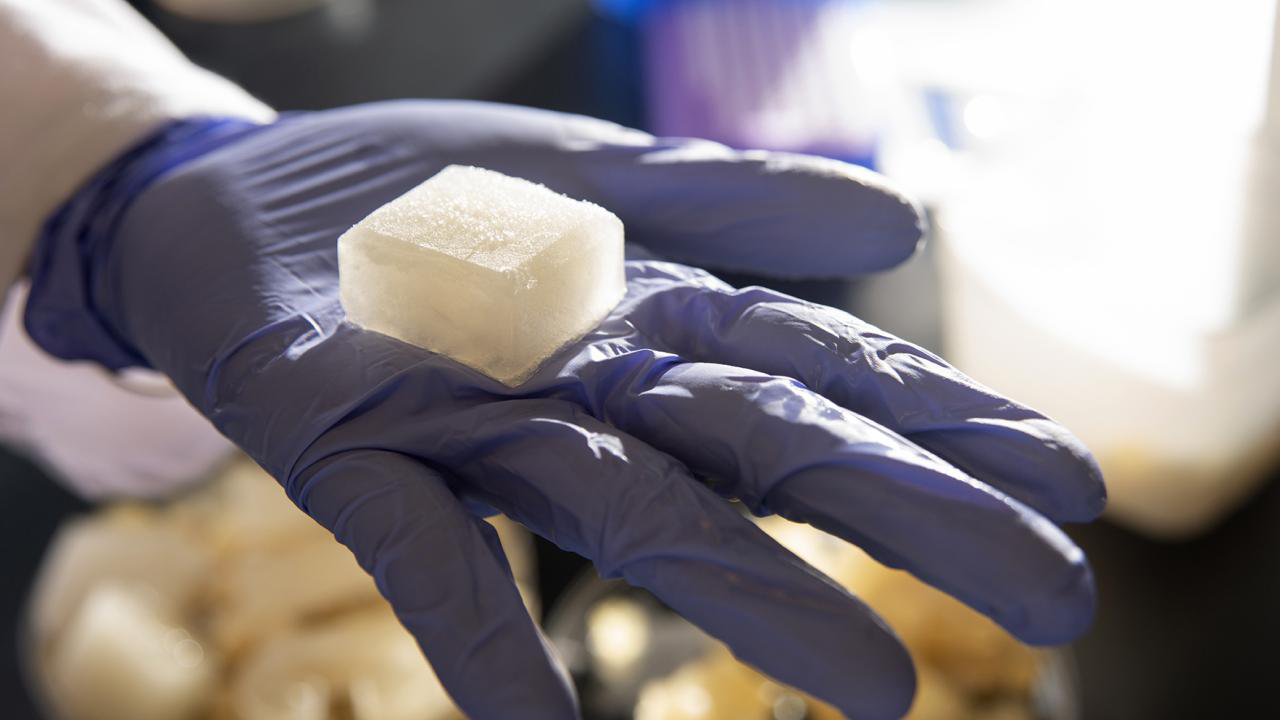
Remember the news about the innovative, reusable, non-molding “jelly” ice cubes from November 2021, developed by UC Davis researchers, including Bio and Ag Engineering’s Gang Sun and Jiahan Zou, and Food Science and Technology’s Luxin Wang? (Original story here: https://www.ucdavis.edu/food/news/uc-davis-researchers-develop-ice-cube-doesnt-melt-or-grow-mold).
The interest in the environmentally friendly, reusable, sustainable ice product may be at least as long-lasting as the product itself. UC Davis News and Media Relations reports that the story was picked up by media in more than 17 different countries, for a total of 90 separate listings: TV, radio, websites, and podcasts, including National Public Radio’s Science Friday. CBS Mornings shared a video interview nationally on April 12th to their 2.26 million subscribers. UK’s Daily Mail has a circulation over 1 million and an average daily readership of more than 2 million – all potential viewers of the story. It was covered by every Sacramento TV station – and an affiliate station in Wisconsin as well. The editors of Futurity, an online science publication that features the latest top university research news around the nation, told UC Davis News and Media Relations that the story had 5,333 page views, which was the top post for two weeks. And the page views of the original UC Davis news post plus the CA&ES version totalled 17,397 - quite a lot of eyes on a news release.
The team has obtained funding from the U.S. Department of Agriculture to fund the initial development of the jelly ice cubes (listed below). Three publications have been published. Stories covering the development have been published in different languages in more than 17 countries, including the United Kingdom, Germany, the Netherlands, New Zealand, Indonesia, Brazil, India, Switzerland, Italy, Australia, France, Canada, China, Singapore, Indonesia, Egypt, Korea, and Argentina. As of March 1, 2022, 14 Confidential Disclosure Agreements have been signed between the UC Davis Intellectual Property Office and various companies. Among them, six are from the U.S., two from Germany, two from Canada, two from Australia, one from Guatemala, and one from Israel. (Statement from the jelly ice cubes research team)
Kudos again to the researchers for their work, and the CA&ES and UC Davis News teams (Amy Quinton, Emily Dooley, and Gregory Urquiaga) for their coverage!
